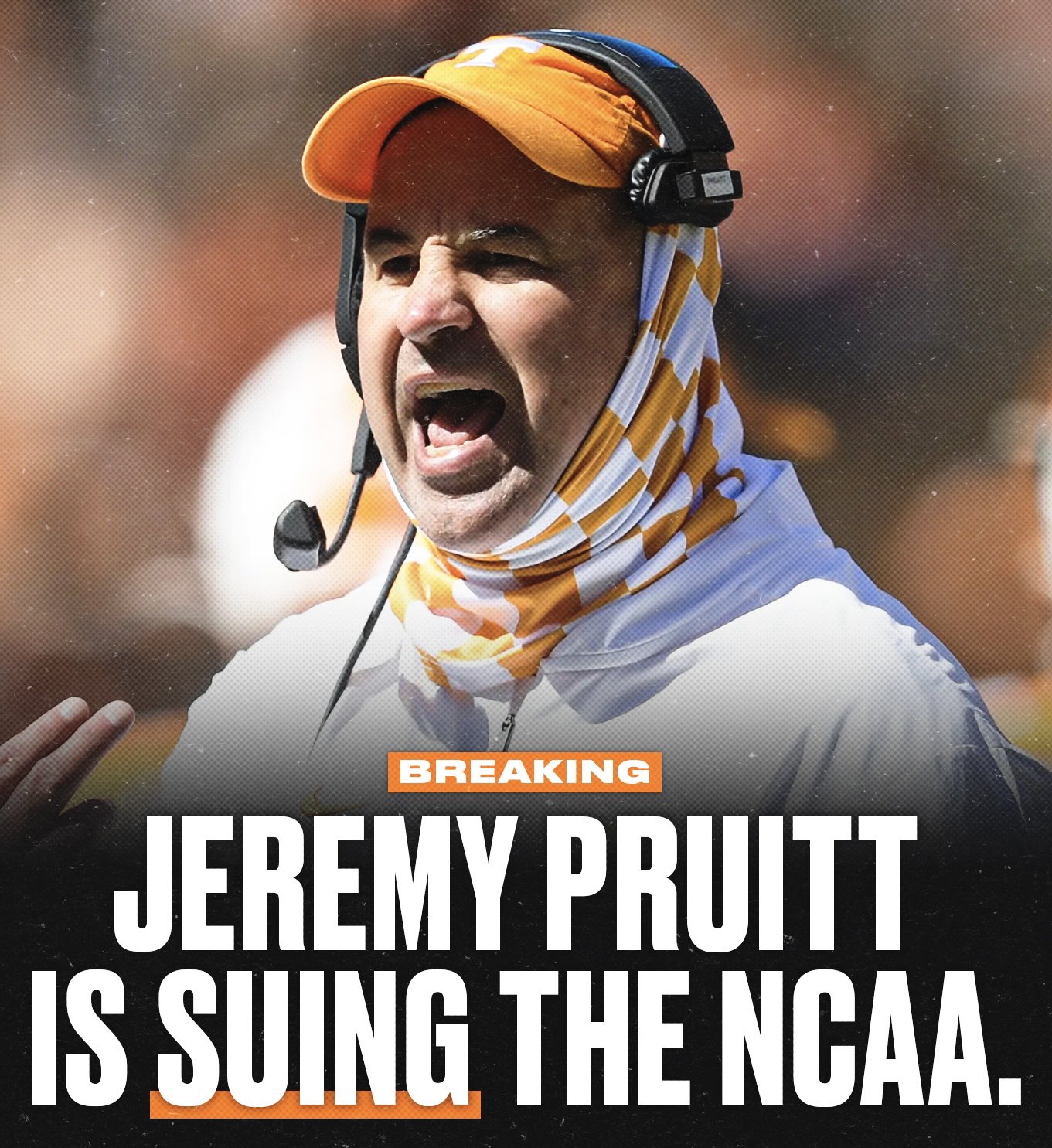Former University of Tennessee head football coach Jeremy Pruitt has initiated a lawsuit against the National Collegiate Athletic Association (NCAA), seeking $100 million in damages. Filed in DeKalb County, Alabama, the suit alleges that the NCAA conspired with the University of Tennessee to designate Pruitt as a “sacrificial lamb” amid recruiting violations that led to his termination in January 2021.
Background of the Case
Jeremy Pruitt served as the head coach for the Tennessee Volunteers from December 2017 until his dismissal in January 2021. During his tenure, the team recorded a 16-19 record. Pruitt’s firing followed an internal investigation that uncovered serious NCAA rules violations, resulting in his termination for cause without the $12.6 million buyout stipulated in his contract.
Allegations in the Lawsuit
The lawsuit asserts that the NCAA and the University of Tennessee collaborated to make Pruitt the primary scapegoat for infractions that, according to Pruitt, predated his arrival. He claims that upon discovering ongoing payments to players early in his tenure, he reported these violations to then-athletic director Phillip Fulmer, who assured him that the matter would be addressed through the university’s compliance department. Despite this, Pruitt contends that he was unjustly held accountable for systemic issues within the athletic department.
Claims for Damages
Pruitt is seeking compensation for various damages, including lost wages, future earnings, reputational harm, emotional distress, and mental anguish. The total amount sought exceeds $100 million, with the exact figure to be determined by a jury. Pruitt’s legal team argues that the NCAA’s actions have severely impacted his career prospects, noting that he has not held a coaching position in college football since his dismissal and currently serves as a coach at Plainview High School in Alabama.
NCAA and University Responses
In response to the lawsuit, the NCAA emphasized that its rules and penalties are established and enforced by member institutions. A statement from the NCAA highlighted that the Committee on Infractions, composed of representatives from member schools and legal professionals, found violations and imposed penalties, which were upheld upon appeal. The University of Tennessee expressed confidence in its actions regarding Pruitt’s case, reaffirming its commitment to prioritizing student-athletes and maintaining integrity within its programs.
Historical Context and Broader Implications
The NCAA’s investigation into Tennessee’s football program revealed 18 Level I violations—the most severe category—encompassing over 200 individual infractions during Pruitt’s tenure. These violations primarily involved recruiting misconduct and impermissible benefits to prospects, current athletes, and their families. As a result, Tennessee faced significant penalties, including a $9 million fine, a six-year show-cause penalty for Pruitt, and the vacating of all wins from the 2019 and 2020 seasons in which ineligible players participated.
Pruitt’s lawsuit raises critical questions about accountability within collegiate athletics, particularly concerning the balance of responsibility between individual coaches and institutional oversight. The case also underscores the evolving landscape of college sports, especially in light of recent changes permitting athletes to profit from their name, image, and likeness (NIL). Pruitt’s attorneys argue that the actions for which he was penalized are now permissible under current NCAA regulations, highlighting potential inconsistencies in the enforcement of rules over time.
Legal Perspectives and Potential Outcomes
Legal experts suggest that Pruitt’s case may hinge on demonstrating that the NCAA and the University of Tennessee acted in concert to unjustly single him out for widespread violations. Establishing a conspiracy would require substantial evidence of coordinated actions aimed at making Pruitt solely responsible for infractions that were allegedly systemic. The lawsuit’s outcome could have far-reaching implications for how accountability is assigned in NCAA investigations and may influence future contractual agreements between coaches and universities.
Conclusion
Jeremy Pruitt’s $100 million lawsuit against the NCAA represents a significant development in the ongoing discourse surrounding governance and accountability in collegiate athletics. As the case progresses, it is likely to shed light on the complexities of NCAA enforcement mechanisms, the responsibilities of university administrations, and the rights of coaches within this framework. The resolution of this lawsuit may not only impact Pruitt’s professional future but also set precedents for how similar cases are handled in the evolving landscape of college sports.

